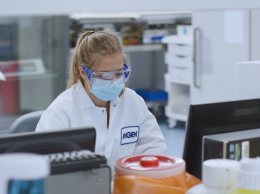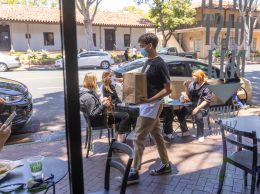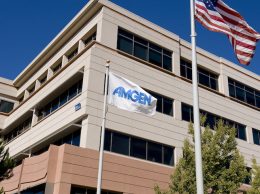Amgen’s decision to license some of its intellectual property to a new drug company that will operate near the biotechnical giant’s Thousand Oaks headquarters could be an exciting development for biotech firms in the 101 corridor, business leaders were told at a breakfast gathering Wednesday in Westlake Village.
The move could be a start toward supporting a biotech cluster that could be a magnet for more talent and investment in the area, according to Brent Reinke, a Westlake Village attorney specializing in venture capital and mergers and acquisitions.
Reinke moderated a panel discussion on how transfers of technology from university classrooms has benefited biotechnology in the region. The event at the Westlake Village Inn was sponsored by the Association for Corporate Growth – 101 Corridor Chapter.
Reinke, with the firm Musick Peeler & Garrett, said he has heard from people familiar with the deal and a client who is about to sign another licensing agreement with Amgen that one of the conditions of the recent agreement was that the new firm must have a physical facility in the area.
The attorney said that until recently, Amgen has tended to keep its intellectual property in house. He said that if what he has heard is true, it is “just a tremendous opportunity for this region to finally get over that hump and become an area where we really could see some vibrant growth in the life sciences community.”
Amgen announced at the end of October that it will license six assets in development to the new firm Atara Biotherapeutics, which is being financed by the venture capital firm Kleiner Perkins Caulfield & Byers. Amgen will take a minority stake in Atara, which will develop treatments for cancer and kidney patients, among other areas. The company will have facilities in the San Francisco Bay Area as well as near the Amgen campus, according to the announcement.
Panelist Paul Meyer, chief financial officer of Westlake Village-based Cynvenio Biosystems, said companies like his own have been disappointed that Amgen has not created and funded a biotech cluster in the area.
Cynvenio next week will introduce a high-tech service that can screen the blood of cancer patients to detect extremely rare circulating tumor cells that are released into the bloodstream by tumors. Its LiquidBiopsy product will identify and analyze cells that are now obtained by expensive and invasive biopsies. The technology was developed at UC Santa Barbara.
Meyer said Cynvenio has benefited in attracting Amgen talent following layoffs at the biopharmaceutical giant. But he said it’s unfortunate that Amgen has not created a cluster to support biotechnology research nearby. “I think that in a way it’s hampering our upside,” he said.
Meyer said Cynvenio has no talent in-house to marry its technology with other systems downstream toward patients. He said that if Cynvenio were located in San Diego, there are many companies with employees there that could be recruited.
Amgen spokewoman Kristen Davis, reached for comment by telephone, said Amgen “was interested and excited to have Atara Biotherapeutics created here locally because it provides the opportunity to further foster biotechnology innovation in the community around our headquarters campus.”
Asked if similar licensing deals are planned, she said, “We are always opportunistic with respect to deals so that we can deliver financially and bring novel products for grievous illness. If conditions are appropriate we could look to support, but again it would depend.” She said Ventura County offers a quality standard of living and is an ideal location for biotech firms.
The two other panelists were Davis Brimer, founder and chief executive of Santa Barbara-based Active Life Scientific, and Sean Caffey, a medical doctor who is co-founder and CEO of Replenish, based in Pasadena.
Active Life has developed a device that can measure bone strength using a probe with a microscopically thin wire. The instrument, based on research from the UCSB biomedical engineering program, can help assess the risk of bone fractures in osteoporosis patients.
Replenish, based in Pasadena, uses technology from USC and Caltech in a tiny drug pump that can be implanted in the eye, avoiding the need for injections from a syringe.
Brimer said that Active Life has no trouble finding people with technical skills in the Santa Barbara area and that UCSB has been very reasonable to work with on royalties, milestone fees and equity stakes. He said that at some point it will be difficult to remain in Santa Barbara because of difficulty in attracting venture capital in an economy based more on tourism.
Caffey said he thinks Pasadena is an excellent spot for intellectual talent. Replenish has problems recruiting because of housing costs and a relatively low number of private schools, Caffey said. Some key employees commute long distances, spending part of the week in Pasadena and part at home in Oregon, Las Vegas and Orange County.






 Print
Print Email
Email

















